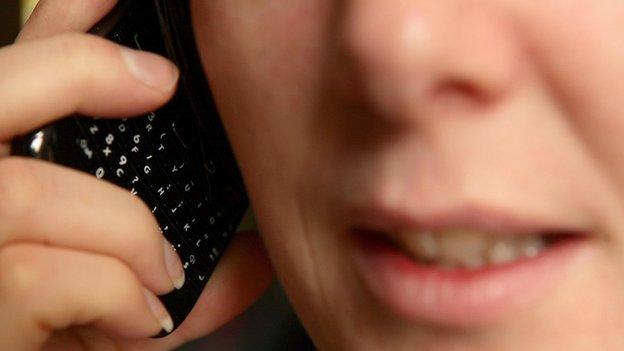PC support scams net con artists $1.5bn
- Published

The scams target older people unfamiliar with technology
More than 3.3 million Americans will fall victim to fake PC support scams in 2015, Microsoft has said.
The scams involve calls from con artists who claim to work for Google, Microsoft or Facebook and tell victims their PC is riddled with viruses.
Those caught out typically pay a fee, often several hundred dollars, to clean up the bogus security problems.
In 2015, more than $1.5bn (£1bn) would be stolen by gangs behind the con, Microsoft predicted, external.
"We have seen a huge spike in these tech support scams," said Courtney Gregoire, a senior lawyer in Microsoft's digital crimes unit, in a blogpost.
Since May last year, Microsoft had dealt with more than 175,000 complaints about the bogus tech support calls, it said, adding that many of the scammers used very aggressive tactics to convince people to pay up.
The con artists also ask people to give them access to their PC over the net to help fix the non-existent problems.
But, said Ms Gregoire, this could expose victims to more problems than just handing over cash via bank cards.
"By granting remote access to your computer from a fraudster, you are putting your personal information at risk," she said.
"They may be trying to take your contacts, your financial password information, and your computer is open to them potentially infecting it with future malware."
Ms Gregoire said anyone who got a phone call about support for their Windows PC should just hang up.
"Microsoft, and other trusted partners, do not cold call you and ask for remote access or for your credit card or payment information," she said.
The statistics were released by Microsoft as it unveiled a partnership with the American Association for Retired Persons to educate its members about the scams.
Older people are often the target of the scammers because many are less familiar with technology.
- Published5 March 2015

- Published27 February 2015

- Published19 December 2014

- Published31 March 2014
